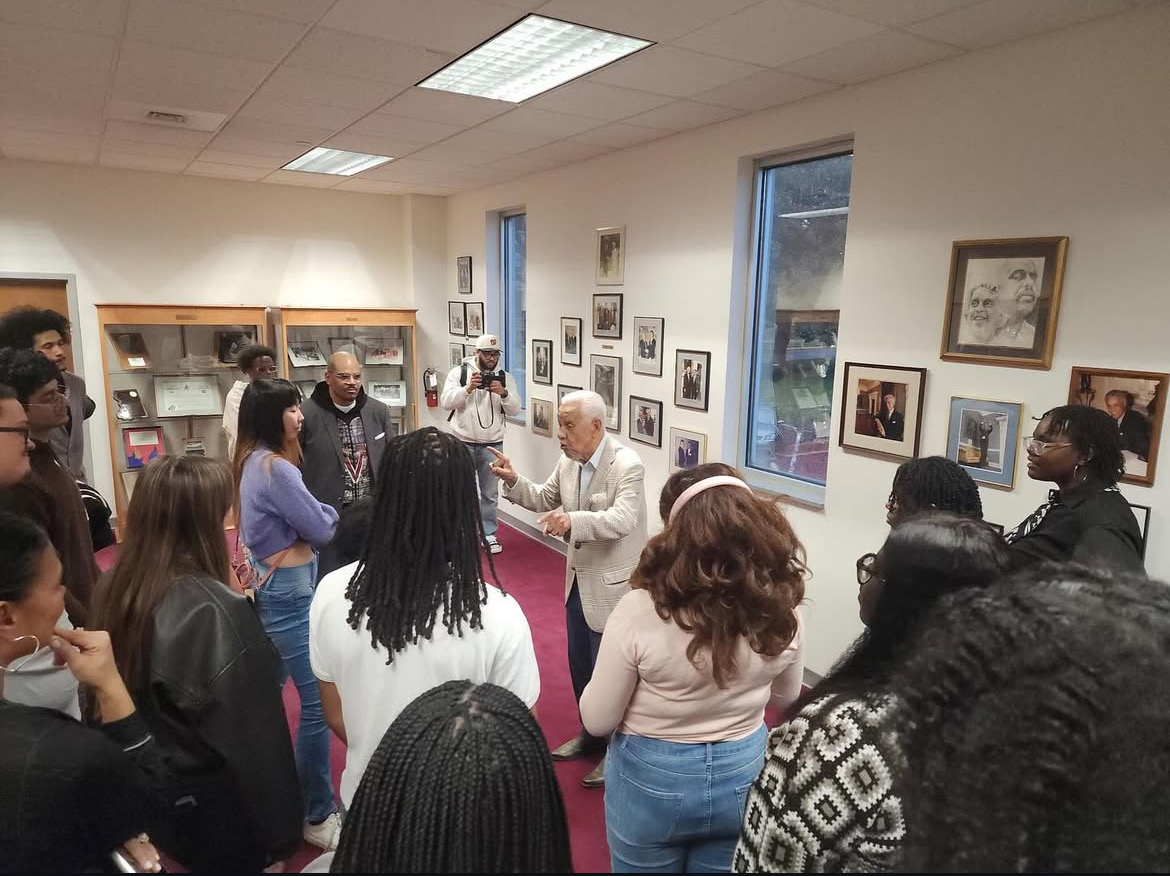If people had asked one year ago why I chose Carleton, I would have said that it was because of Carleton’s welcoming community. If you asked me today, I would say it was because I didn’t know the reality.
Before I came to Carleton, I heard wonderful things about the community and life in a lovely small town. Looking back, I should have considered who was telling these stories. I heard it from white people, who do not seem to have problems fitting in here. For international students who have never been to the U.S. — like me — these stories were far from the truth.
September 2022 was a month full of emotions. I traveled 5,000 miles to come to Carleton, fulfilling my search for a better education and more opportunities than what my country could ever offer. I gave up family, friends, a three-year-long relationship and the sport I played professionally, but it was all going to be worth it: I was going to live the American college experience I had heard so much about. The dorm life, the college parties, the baseball and American football matches and the inclusivity in the lovely town of Northfield.
The first exposure I had to this “lovely” town was opening my bank account at Wells Fargo, where, as soon as I mentioned that I came from Latin America, the lady behind the glass said, “Oh, there is a very good Mexican restaurant in town. I’m sure you will feel at home here.” I just smiled and avoided telling her I had never been to Mexico and couldn’t even tolerate spicy food.
Despite this experience, I was still excited about living here. I had expectations of creating a strong bond with my roommate. Unfortunately, I knew from the very first day of living together that my expectations would never be met. Her condescending and microaggressive attitude would be a persistent problem that only worsened my feelings of isolation here.
For her, I was always so messy, so loud and so lazy, fitting perfectly into the Latino stereotype. My sexuality and relationships were of constant interest to her and her white friend group. It was sad to see how prejudice about who I am as a Latina woman pursued me to Carleton. I received comments that I now believe were motivated by racial bias or ignorance about my culture.
It is important to understand that, coming from a different country, it is really difficult to identify microaggressions regarding race and condescending behavior, especially when I had never experienced it before. Don’t get me wrong, racism does exist in Latin America. It just feels different. Unfortunately, the microaggressions that I have experienced at Carleton have been harder to deal with: they have made me feel guilty and inferior, but it’s much harder to call someone out about it. It is subtle: they toe the line of racism and make you second-guess whether or not you’re being targeted or if it’s all in your head. It took me two-and-a-half terms to realize that I had experienced racism during my time at Carleton, in part because I did not want to admit that there is racism at the college I chose.
When I sought help and explained how the situation was affecting my mental health, Carleton couldn’t care less. I was lucky to have a Latinx Area Director that could understand my situation, but the most they could do was relocate me. Welcome to Carleton, where you have to move out of your room when your roommate is racist. In terms of mental health support, I only received a fifteen-minute conversation with a woman who told me that I could leave my room if I disagreed with her behavior or that I could ask her directly to stop being racist against me. The problem with those who refuse to acknowledge their racism is that they will never change.
Carleton is never going to improve if there aren’t any consequences for racist behavior. As a result of the racism-fueled conflict, I had to move out of my room with no support during classes, while my former roommate now has the room all to herself, a coveted living situation. It seemed to me like her racist behavior was rewarded by this institution. Welcome to Carleton, where wealthy white people are rewarded for their microaggressions and ignorance.
On its webpage, Carleton boasts its statistics of “diversity and inclusion,” with a population of around 10% international students and plans to increase it to 12%. In reality, there is no “diversity and inclusion at Carleton, only forced diversity and pretentious inclusiveness meant to look good for prospective students. I am grateful for the opportunity to study in the U.S., but I can’t escape the thought that I’m only important to Carleton because I increase their diversity.
What about making sure current international students and students of color feel welcome and included before planning to bring more international students? I do not want Carleton to bring more students from my country only for them to feel that they do not belong, to feel the way that I do — especially when Carleton seems to ignore the differences between immigrants and international students. I have not experienced the story of an immigrant student. Therefore, I could never understand their struggle, just as they could not understand mine as an international student. Carleton should recognize our differences and stop the generalization when promoting itself at college fairs.
The special event of exclusion is Parents Weekend, when most international students whose parents can’t afford a ticket for one weekend are left out. And then the American families come, majority white, and unintentionally remind us that we would never belong here because we do not understand their conversations and way of interacting. But my mom wouldn’t make it here even if she could afford it, because Carleton only sends invitations and emails in English, a language she does not understand.
I’m not trying to generalize: not all white people at Carleton are racist. But I’m sure every person of color has experienced racism here. Sometimes those racist behaviors are because of ignorance, because people do not know what comments are hurtful and what comments are not.
I’m not writing this to blame anyone. I’m writing this to raise awareness about this behavior and to promote intention from the white community to reach inclusion. Asking is better than assuming. Next time you meet an international student, it is better to ask facts about their culture and country instead of assuming things and making ignorant comments. Showing indifference to other people’s culture is also harmful: it makes people feel unseen and silences their stories. How much do you know about your international friends’ or people of color’s culture? Have you ever attended events where they exposed their dances, food, or clothes? We are here, and we are learning from your culture and assimilating into your norms.
In the end, I’m not sure if feeling out of place and being discriminated against is a fair price to pay to receive quality education. I’m no longer sure if I should have sacrificed the sport I played competitively to come to a country for this college experience. The college experience I have had so far is a feeling of “I want to get the fuck out of here,” bad parties, and a traumatizing freshman rooming experience. Welcome to Carleton, where college is only the best four years of your life if you are white and rich.
Categories:
“Welcome to Carleton” (but only if you are white)
May 12, 2023
3
0
More to Discover











Kyler Takayama • Oct 3, 2023 at 6:33 pm
As much as I’d like to be sympathetic, this is really a you problem. The lady at the bank was trying to be nice, and you instead saw an innocent restaurant recommendation as a racist microaggression. Your problems at Carleton, some of which are legitimate, go through an unnecessary lens of racism which discredits the whole message. Not everything is about race; just because you aren’t white, doesn’t mean the college is screwing you over because of that.
Sumudu • Jan 28, 2025 at 8:10 am
Recomending a Mexican restaurant to someone for being LatineX especially when they are not even from Mexico is as racist as recommending a fried chicken place to a Black person. This is textbook racism. Correct “not everything is about race”, however, this is definitely about racism. “The college is screwing you over because of” your race the college is screwing you over because of their racism.
Jay Kent • Aug 12, 2023 at 5:44 pm
Great to be an anonymous. Attack the College in an immature and uninformed way. The door swings both ways.
Jay Kent
Class of 1955